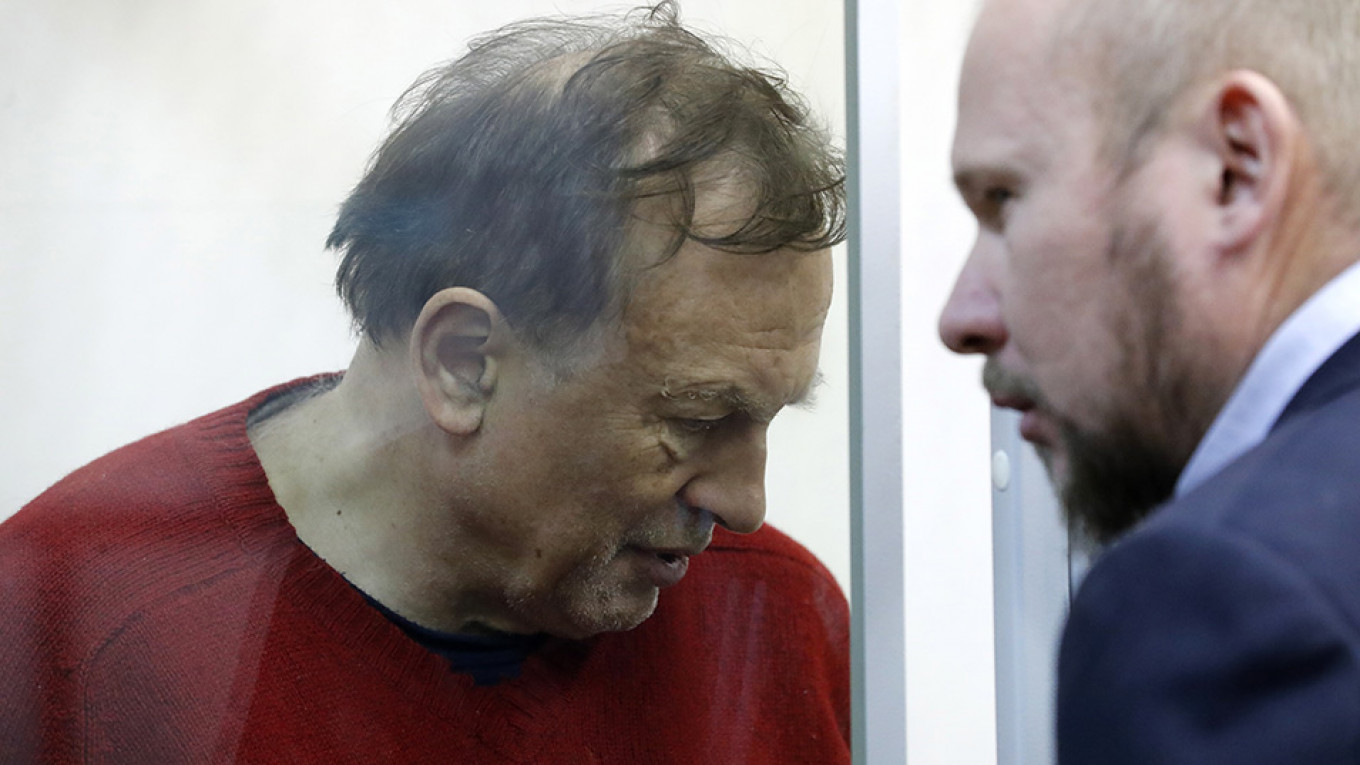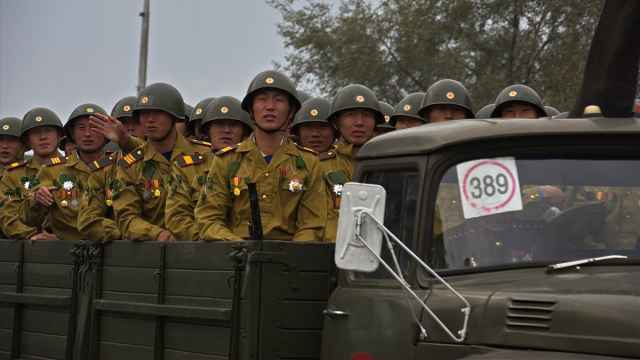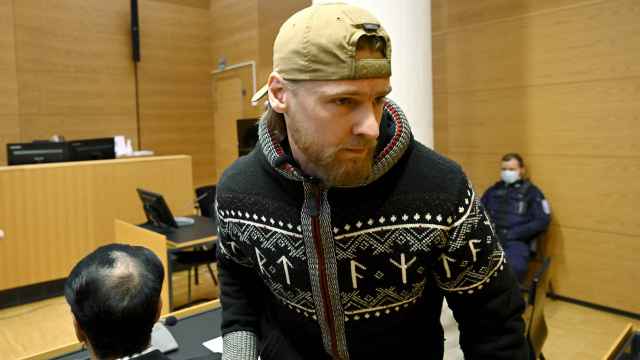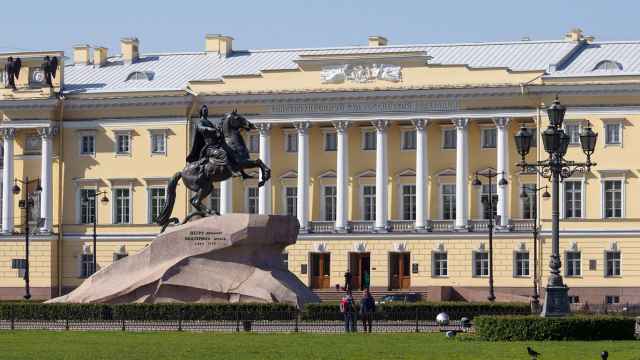ST. PETERSBURG – For years Oleg Sokolov was a well-known eccentric among the academic elite of Russia’s cultural capital St. Petersburg.
As one of the founders of the city’s historical reenactment society, at weekends he liked to dress up as Napoleon Bonaparte, ride a white stallion and bark orders at pretend soldiers. His obsession with the French emperor echoed another of the city’s famous characters — the anti-hero Raskolnikov in Dostoyevsky’s novel “Crime and Punishment” who became convinced he was a genius like Napoleon.
On Saturday, eccentricity turned to horror after police fished Sokolov, 63, out of the icy waters of St. Petersburg’s Moika canal with a backpack containing the severed arms of his 24-year-old girlfriend and former student, Anastasia Yeshchenko. They later found the young woman’s decapitated head in Sokolov’s nearby apartment, and on Monday a court charged him with murder.
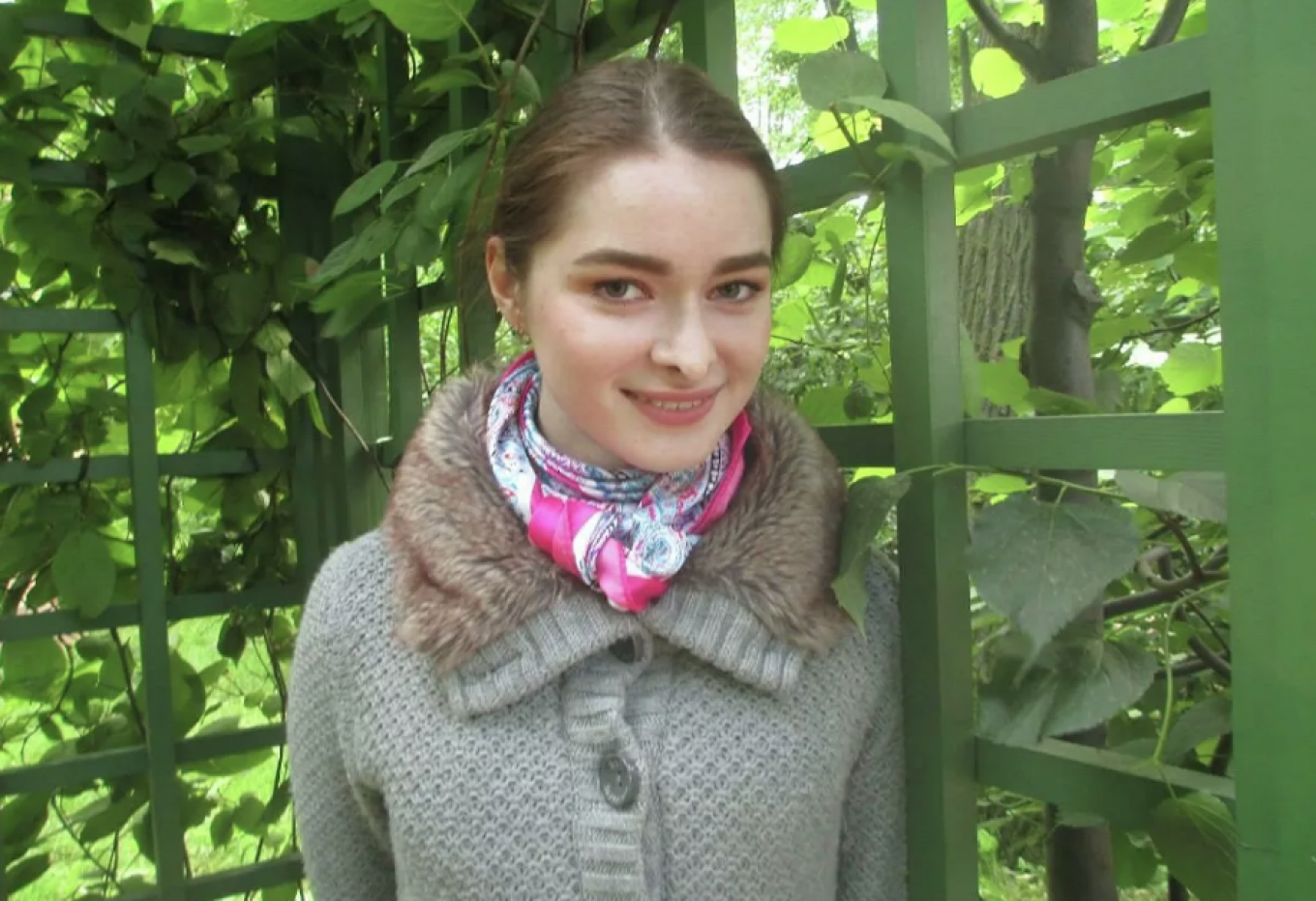
The case has sparked calls for an investigation into St. Petersburg’s prestigious state university — where Sokolov held tenure — after reports that the professor had abusive relationships with young female students and exhibited violent and erratic behavior in the past were ignored.
“Multiple appeals to the authorities from citizens, students and public figures were ignored and Oleg Sokolov remained at large, avoided all criminal investigations and even kept his job,” said an online petition addressed to the Russian government that had over 60,000 signatures by Tuesday afternoon.
It also shines a light on an entrenched culture of impunity in Russia that lets perpetrators of domestic violence escape prosecution until it is too late for their victims.
According to Alexandra Oleynik, a psychologist who helps victims of violence, “complaints about domestic violence in Russia are largely ignored and it’s an exception when the perpetrator is brought to justice.”
“If our laws for regulating such problems had been better, then this professor would have been punished a long time ago and this murder may not have happened,” she told The Moscow Times.
Vasiliy Kunin, a local municipal deputy and ex-student of Sokolov who wrote to the university last year calling for his dismissal, tweeted that the professor had often acted erratically.
He said the university rector’s “policy of hushing up all problems was bound to result in grave consequences.”
Critics say Sokolov was let off the hook for several outbursts of violence that were widely reported in the media.
They cite an incident last March in which he reportedly called on two of his confidantes to assault a student who had criticized him at a public lecture. A video of the scuffle was widely shared on YouTube, but an investigation by the university’s ethics committee concluded that the incident had been “a provocation” and decided to reprimand Sokolov rather than discipline him. Calls to further investigate the incident from several public officials were reportedly ignored.
In a more serious incident dating back to 2008, Sokolov was reported to have beaten and tortured a female student who had attempted to end her romantic relationship with him.
“Every time I begged him to stop and come to his senses, he beat me harder and threatened to kill me and bury my body in a nearby garbage dump,” the unnamed victim wrote in a police statement published by the Moskovsky Komsomolets news outlet.
The St. Petersburg police station where the victim gave the statement failed to follow up on the allegations, according to the outlet, and Sokolov escaped punishment.
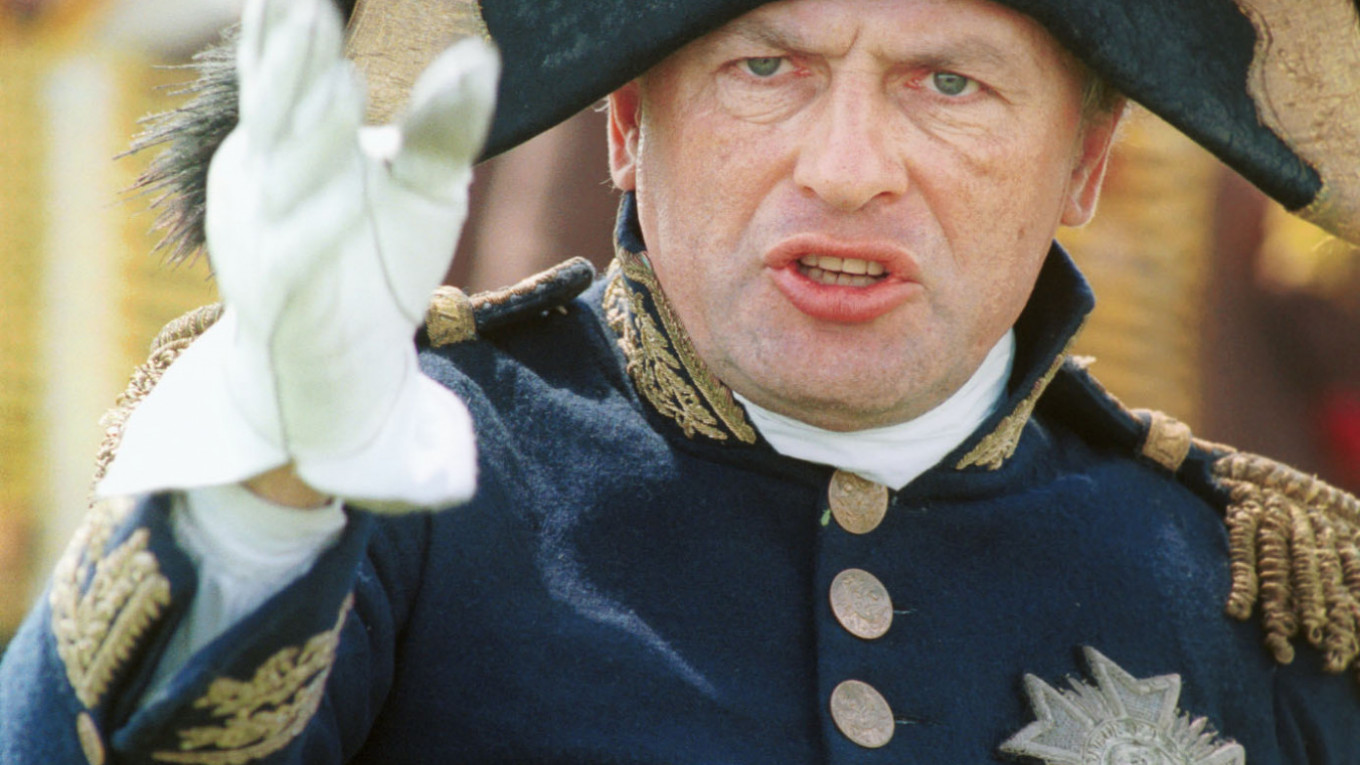
Sokolov’s fellow battle reenactment enthusiasts also questioned his mental state.
“For those who do reenactments, it was no secret that he was emotionally unstable,” Alexander Valkovich, the president of a prominent historical reenactment association, was cited as saying by the independent Novaya Gazeta newspaper.
“When he put on his uniform, it was as if he turned into a different person … He equated himself with emperor Napoleon.”
Other acquaintances said that Sokolov’s obsession with Napoleon had morphed into contempt for the outside world.
“Sokolov genuinely believed that he was the reincarnation, ‘the second coming’ of Napoleon into this world,” Lydia Nevzorova, the wife of prominent local journalist Alexander Nevzorov, wrote in an Instagram post.
In a public statement issued Monday, St. Peterburg State University denied reports that any students had complained about physical abuse from Sokolov, and added that he had always received positive anonymous reviews for his teaching.
It went on to say that the 2008 incident was unverifiable as it was based on an anonymous source and that the scuffle last year had resulted in disciplinary action for the professor.
“We are already working to set up additional measures to prevent such situations in society in the future,” it said, without specifying what that would mean.
Sokolov has admitted to the murder, but in a court hearing on Monday explained his actions by saying Yeshchenko had attacked him with a knife when he told her he would be spending the weekend with his daughters from an earlier marriage.
“I have seen many women, but I’d never encountered such an explosion of aggression before,” he told the court.
Fit of passion
Sokolov’s defense team is reportedly planning to argue that the murder was not premeditated and happened in a fit of passion — a crime that carries a maximum sentence of three years in Russia. They are not planning to argue that he is mentally unstable.
Sokolov’s lawyer, Alexander Pochuev, on Monday asked the public to not rush to conclusions about his client and to wait for a final court decision on the murder case.
“Although the story looks appalling for the public, there is still much to be sorted out. There are skeletons in closets everywhere,” Fontanka cited him as saying.
Local media reported that Sokolov had planned to dispose of Yeshchenko’s dismembered body bit by bit, then put on his Napoleon uniform for one last time to take his own life in a grandiose gesture Sunday at St. Petersburg’s Peter and Paul Fortress.
For Yeshchenko’s brother Sergei, however, Sokolov is no tragic anti-hero — just an abuser and a murderer.
“The reason was his jealousy. I spoke to her before it happened. She said she had been planning to go to a friend’s birthday party. He beat her and she left, but then she went back,” he told the RBC news website.
A Message from The Moscow Times:
Dear readers,
We are facing unprecedented challenges. Russia's Prosecutor General's Office has designated The Moscow Times as an "undesirable" organization, criminalizing our work and putting our staff at risk of prosecution. This follows our earlier unjust labeling as a "foreign agent."
These actions are direct attempts to silence independent journalism in Russia. The authorities claim our work "discredits the decisions of the Russian leadership." We see things differently: we strive to provide accurate, unbiased reporting on Russia.
We, the journalists of The Moscow Times, refuse to be silenced. But to continue our work, we need your help.
Your support, no matter how small, makes a world of difference. If you can, please support us monthly starting from just $2. It's quick to set up, and every contribution makes a significant impact.
By supporting The Moscow Times, you're defending open, independent journalism in the face of repression. Thank you for standing with us.
Remind me later.



